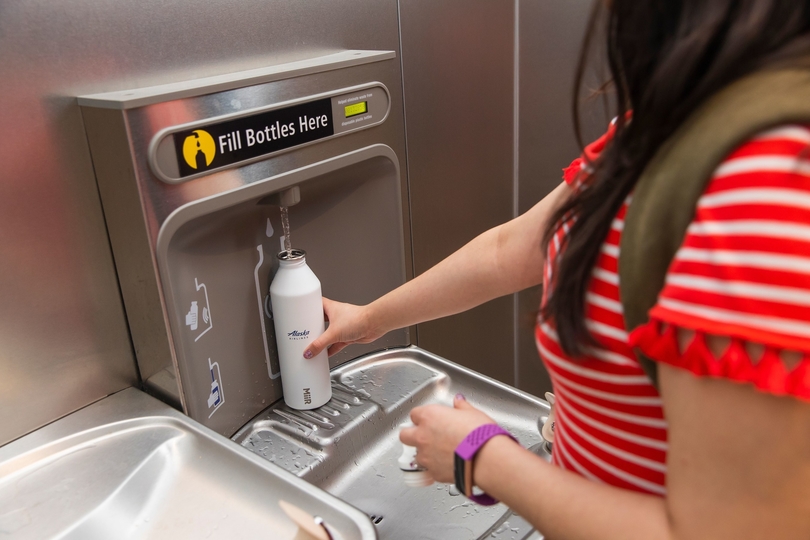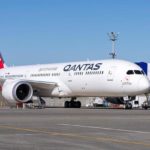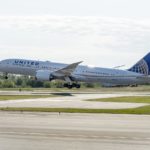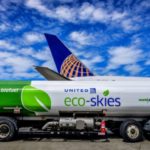
Seattle (TAN): United States-based carrier Alaska Airlines will ask flyers to bring their own water bottle and fill it before boarding the plane as part of the airline’s sustainability initiatives.
Under #FillBeforeYouFly, Alaska will aim to cut inflight single-use plastic waste per passenger by 70% by 2020. The airline said it will encourage both its customers and employees to get their own bottles.
“We’re passionate about working with our guests, employees, airports, and partners to reduce waste, protect habitats, and improve water health. Land, water, and animals are incredibly special parts of the places we live and fly – and it takes many different company and individual actions together to protect them for the long term,” Alaska Airlines’ Vice President of External Relations, Diana Birkett Rakow said.
[ALSO READ: Viasat collaborates with GetYourGuide to enable flyers to book activities in air]
Rakow said over 700,000 plastic water bottles and four million plastic cups could be saved from going to landfills each year if only 10% of the passengers could bring their own bottles. Plastic bottles constitute one of the top five items found during beach cleanings across the globe, Alaska said.
“This is just one step. If just 10% of our guests bring their own pre-filled water bottle when they fly and choose reusables, it could save more than 700,000 plastic water bottles and four million plastic cups per year. That’s a big lift,” she added.
For each customer who brings a pre-filled water bottle on the flight and uploads an image on social media with the hashtag #FillBeforeYouFly and tag @AlaskaAir, Alaska Airlines will plant a tree to further its sustainability efforts.
[ALSO READ: San Sebastian Wins UNWTO Award for Sustainability & Governance]
The airline is collaborating with environmental organisations such as United States-based Lonely Whale, sustainable drinkware firm MiiR, Oregon-based nonprofit Bonneville Environmental Foundation and Seattle-Tacoma International Airport.
“We know this is a resource intensive business with many stakeholders involved in the journey. While we’ve made progress, there’s a long road ahead of us. We’re working with supply chain partners and employees to come up with solutions to reduce waste, adopt sustainable practices and eliminate single-use plastics inflight. Change takes time; we value the collective impact our customers and employees can make today,” Rakow said.




